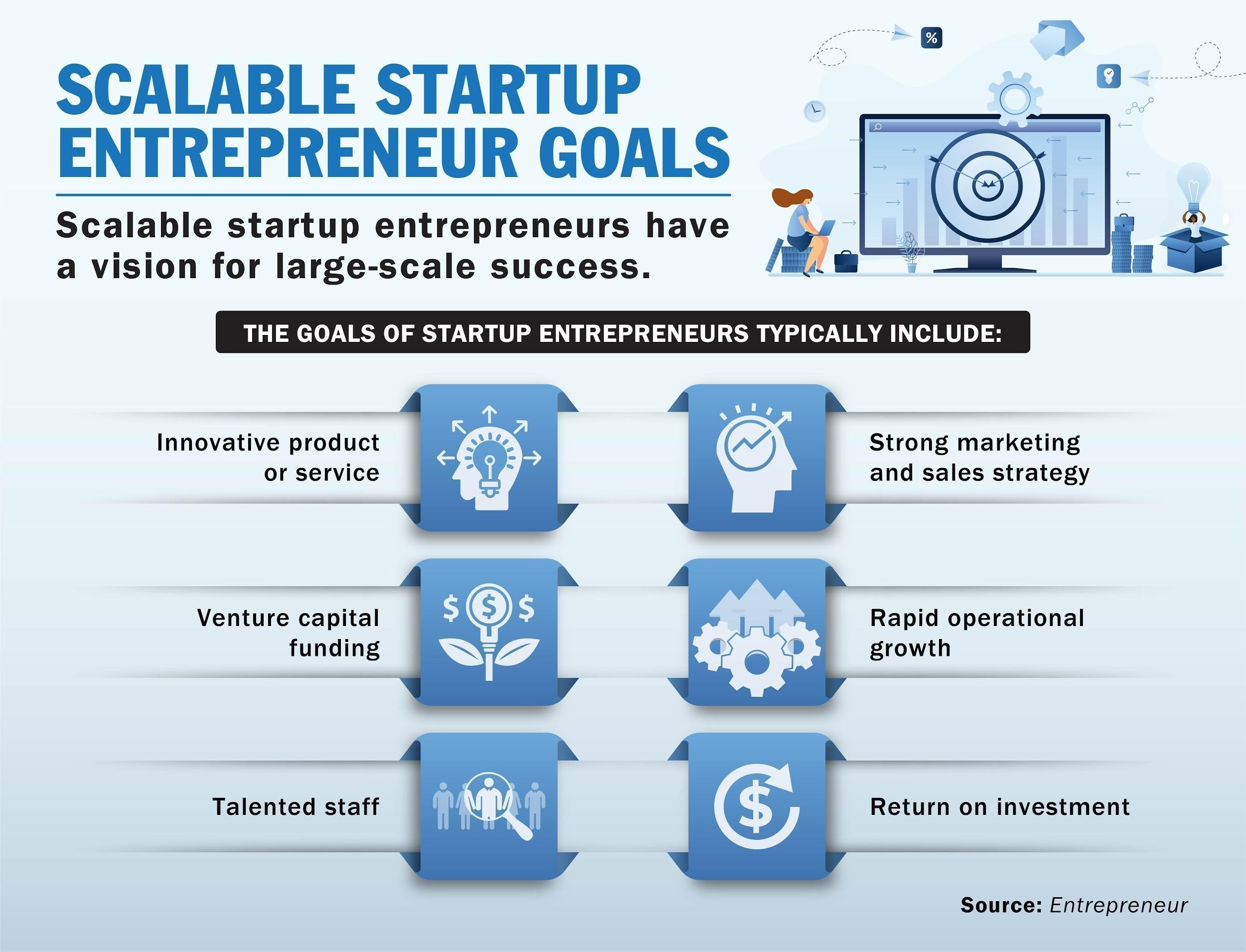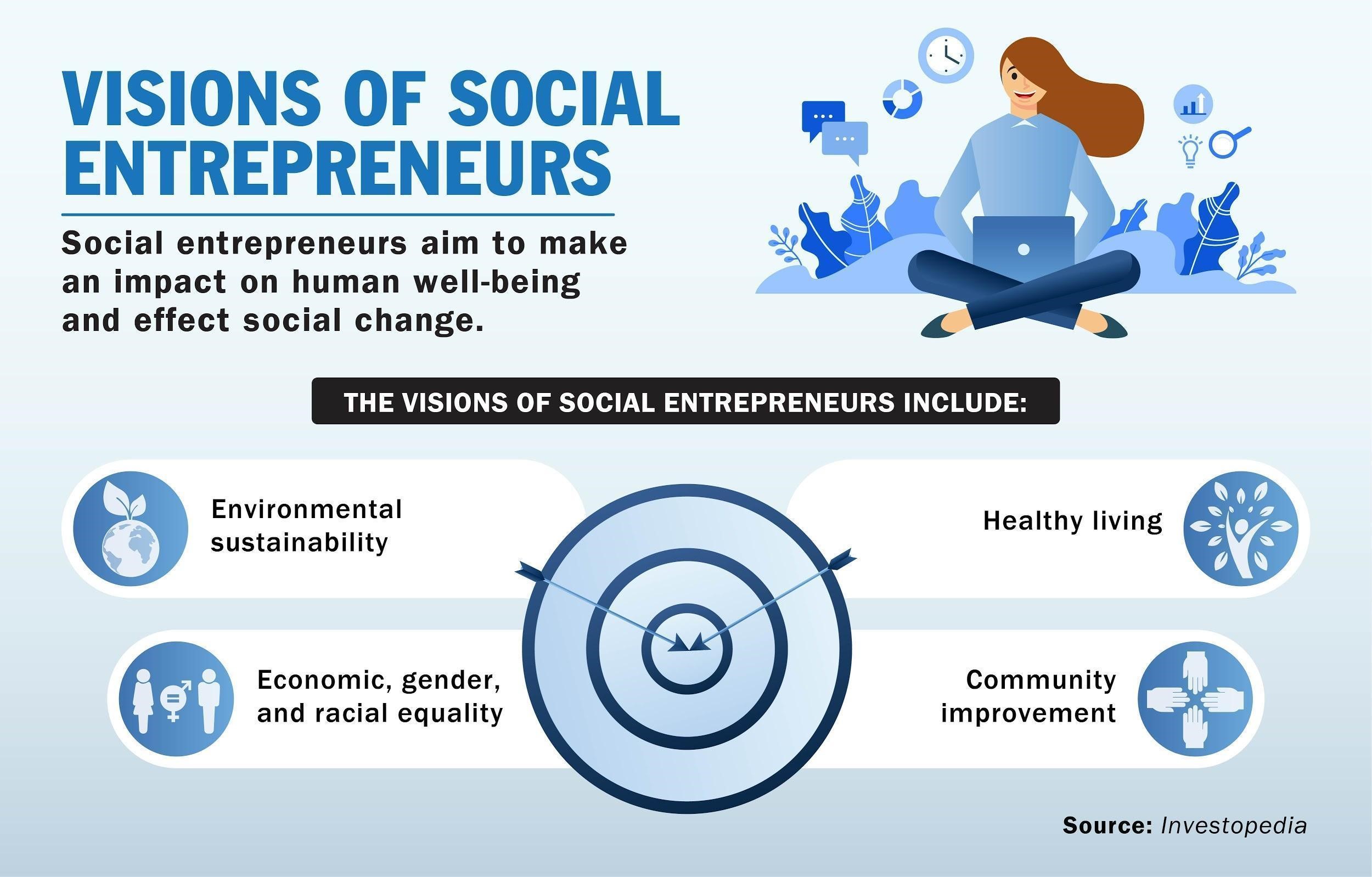
What Does It Mean to Be an Entrepreneur?
An entrepreneur is defined as anyone who founds or organizes a business, then continues to be an active participant in the operation of that business. In other words, an entrepreneur is anyone who launches and continues to run their own company.
Investopedia notes that entrepreneurs typically finance their ventures via loans from investors, their own savings, or money from their families. This highlights the importance of having a solid financial plan in place, as well as a thorough understanding of the risks inherent in the enterprise.
Becoming an Entrepreneur
While there is no one “right” way to become an entrepreneur, the general career trajectory usually looks something like this:
- Develop an idea for a unique or in-demand business.
- Learn about and gain experience in a range of business roles, including finance and accounting, management, and marketing.
- Make a business plan and establish a source (or sources) of funding.
- Recruit talented workers and managers with the skills needed to develop, test, implement, support, and maintain the company’s products.
- Devise strategies for launching the product or service, and for attracting and retaining customers.
- Once the company is established, seek out ways to grow revenue by expanding into new areas and product lines.
As the company matures, the founder’s role is likely to include both long-term strategic planning and short-term tactical management and financial decisions. Pursuing a Master of Business Administration (MBA) or similar management-focused degree provides women entrepreneurs with the skills they’ll need to succeed at every step of the process as they realize their business goals.
Learn More About Entrepreneurship
- Forbes, “Seven Things to Know When Becoming an Entrepreneur.” Discover some of the core principles of entrepreneurial pursuit.
- Investopedia, Entrepreneur. Dig deeper into the specific definitions of entrepreneur and entrepreneurship
What Are the 4 Types of Entrepreneurship?
Anyone interested in starting and running their own business should consider which entrepreneurial model they prefer: small business, scalable startup, large company, or social entrepreneurship.
1. Small Business
Small businesses represent the overwhelming majority of U.S. entrepreneurial ventures. A small business could be any company, restaurant, or retail store that’s launched by a founder, without any intention of growing the business into a chain, franchise, or conglomerate. For example, opening a single grocery store falls under the small business model; creating a nationwide chain of grocery stores doesn’t. Small business entrepreneurs usually invest their own money to get their companies off the ground, and they only make money if the business succeeds.
2. Scalable Startup
Scalable startups are less common than small businesses, though they tend to attract a lot of media attention. These businesses begin on a very small scale, often as just the seeds of an idea. This germ is then nurtured and scaled, typically through the involvement of outside investors, until it becomes something much larger. Many Silicon Valley tech companies fall under this model; they begin in an attic, garage, or home office before eventually scaling into large corporate headquarters.
3. Large Company
Sometimes, entrepreneurs work within the context of a larger, established company. Imagine that you work at a large auto manufacturing company. Through careful market research, you realize there is a high demand for motorcycles, and that your company has many of the technologies and processes in place to branch into motorcycle production. You go to your boss and ask for the funding to launch a brand-new motorcycle division, and you are approved. This is an example of what the large company entrepreneurship model might look like in practice.
4. Social Entrepreneurship
The final model to consider is social entrepreneurship, which seeks innovative solutions to community-based problems. According to Investopedia, social entrepreneurs “are willing to take on the risk and effort to create positive changes in society through their initiatives.” In other words, a social entrepreneur launches an organization that’s fundamentally about enacting positive social change, not merely generating profits. The social change in question may pertain to environmental conservation, racial justice, or philanthropic activity in an underserved community.
1. Small Business Entrepreneurship
According to the Small Business Administration (SBA), more than 99% of all U.S. businesses fall into the small business category.
Defining Characteristics of Small Business Entrepreneurship
What distinguishes small business entrepreneurs from other kinds of entrepreneurs? There are a few distinct characteristics:
- Small business entrepreneurs focus initially on a single product, market, or locality. While in their startup phase, the entrepreneurs probably don’t have plans to expand the company.
- The initial goal of small business entrepreneurs is to make a profit, although even in its early stages, the business may be motivated by the entrepreneur’s desire to effect social change.
- Most small businesses are either self-funded or funded through small business loans. Outside investors and venture capitalists are very rarely involved.
- These are among the greatest challenges small business entrepreneurs face:
- Ensuring a steady cash flow without relying on third-party investments
- Finding time for family and friends
- Staying abreast of technology and market changes that affect the business
- Devising a marketing strategy to attract the company’s target audience
- Maintaining a solid reputation for their brand
- Keeping an eye on the competition
What Industries Do Small Business Entrepreneurs Work In?
While small business entrepreneurs work across a range of different fields, many of them operate in the context of “mom and pop” brick-and-mortar shops: hairdressers, bakers, restaurateurs, and retail store owners.
Additionally, small business entrepreneurship can encompass consultants and creative professionals, such as copywriters, marketers, or graphic designers who go into business for themselves. Service trades, such as electricians and plumbers, also fall under this category.
Find Out More About Small Business Entrepreneurship
- Business Know-How, “16 Tips for Starting and Succeeding in Your Own Business.” Review some best practices for launching a small business.
- Business Insider, “11 Tips for Starting a Small Business with Little to No Money.” Find out how you might start a small business on a shoestring budget.
- , “5 Small-Business Ideas for the Beginner Entrepreneur.” Brainstorm some ideas for launching a small business.



